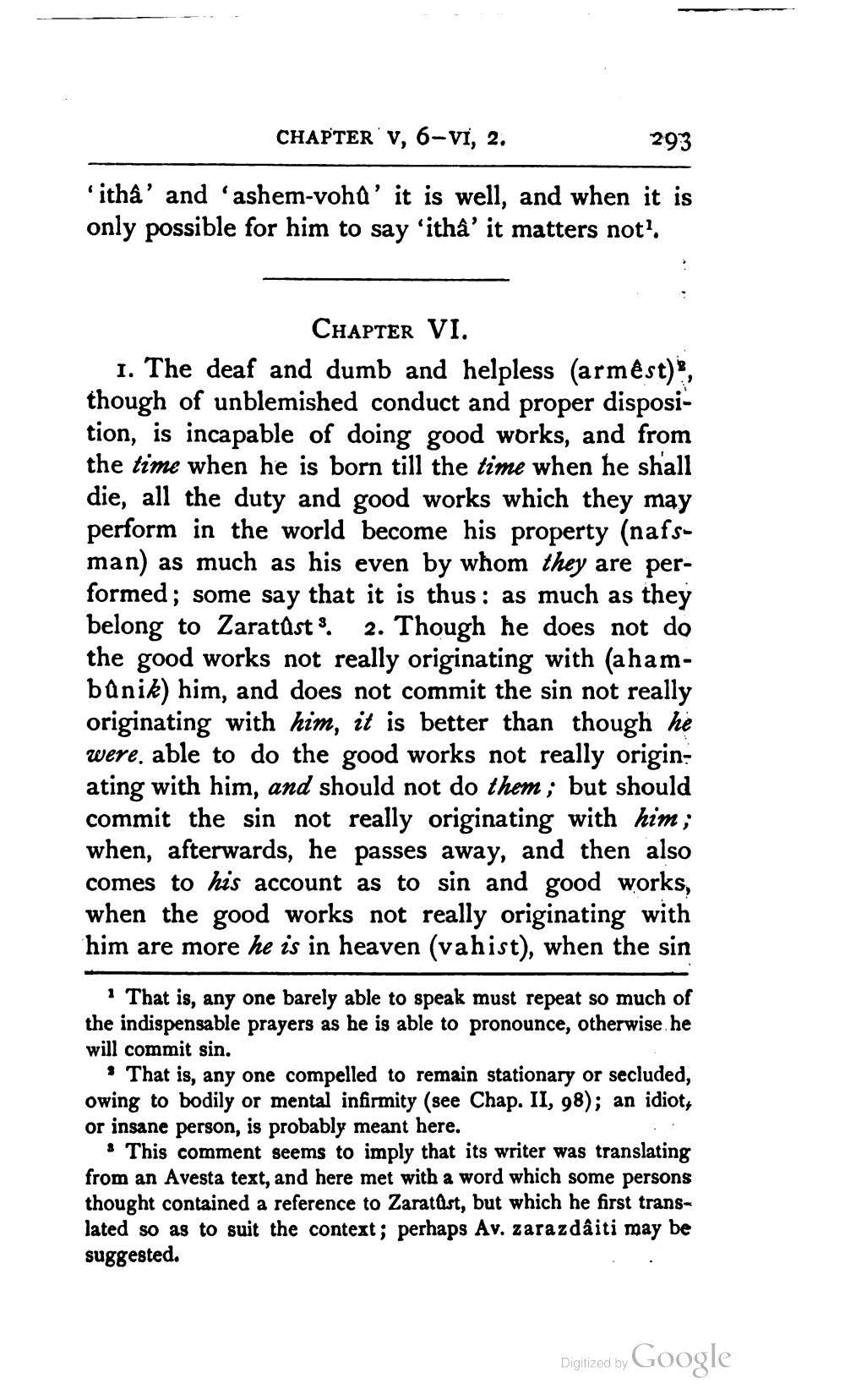________________
CHAPTER V, 6-VI, 2.
293
'ithâ' and 'ashem-vohd' it is well, and when it is only possible for him to say 'ithâ’ it matters not?
CHAPTER VI. 1. The deaf and dumb and helpless (armêst), though of unblemished conduct and proper disposition, is incapable of doing good works, and from the time when he is born till the time when he shall die, all the duty and good works which they may perform in the world become his property (nafsman) as much as his even by whom they are performed; some say that it is thus: as much as they belong to Zaratūst . 2. Though he does not do the good works not really originating with (ahambûnik) him, and does not commit the sin not really originating with him, it is better than though he were, able to do the good works not really origin: ating with him, and should not do them; but should commit the sin not really originating with him ; when, afterwards, he passes away, and then also comes to his account as to sin and good works, when the good works not really originating with him are more he is in heaven (vahist), when the sin
· That is, any one barely able to speak must repeat so much of the indispensable prayers as he is able to pronounce, otherwise he will commit sin.
That is, any one compelled to remain stationary or secluded, owing to bodily or mental infirmity (see Chap. II, 98); an idiot, or insane person, is probably meant here.
* This comment seems to imply that its writer was translating from an Avesta text, and here met with a word which some persons thought contained a reference to Zaratast, but which he first translated so as to suit the context; perhaps Av. zarazdâiti may be suggested.
Digitized by Google




